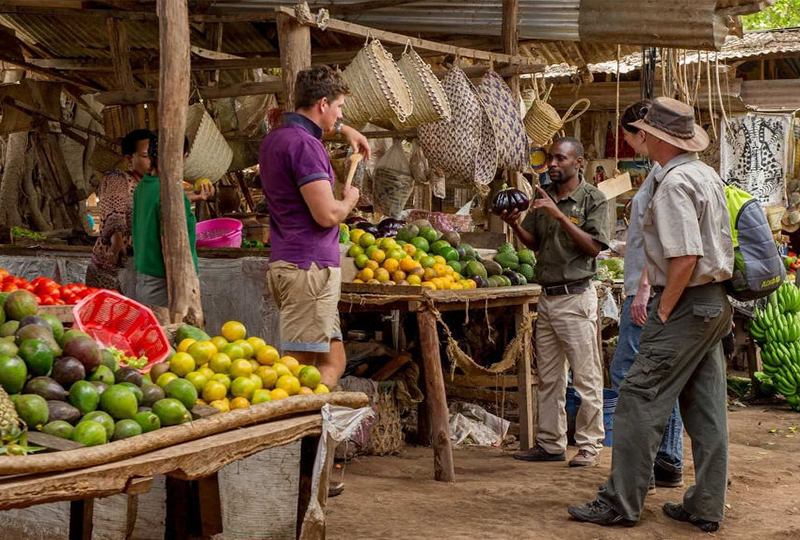Visit a Traditional Tanzanian Market: What You’ll Find
One of the best ways to experience real life in Tanzania is by visiting a traditional local market. Vibrant, noisy, colorful, and full of character, these markets offer a window into daily Tanzanian life, far from the safari trails and luxury lodges. At Mandari Travel, we include authentic market visits in many of our cultural tours to help travelers connect with people and traditions in a truly hands-on way.
What Makes Tanzanian Markets So Special?
Tanzanian markets are more than places to shop,they’re community hubs. Farmers, artisans, herders, and home cooks come together to trade, talk, and celebrate culture. It’s a blend of flavors, colors, and conversations that you won’t find anywhere else.
Whether you’re wandering through a large town market like Arusha Central Market, or a smaller village gathering, here’s what you can expect:
1. Fresh Produce and Spices
Expect to see pyramids of ripe bananas, avocados, tomatoes, onions, cassava, and sweet potatoes. Tropical fruits like mangoes, pineapples, and jackfruit are abundant, especially during harvest seasons.
Don’t miss:
- Freshly ground spices like cardamom, cloves, and turmeric
- Local herbal remedies sold by traditional healers
2. Handmade Crafts and Textiles
Markets are a treasure trove of locally made items, including:
- Kangas (bright, patterned fabrics with Swahili sayings)
- Beaded jewelry made by Maasai and other tribal artisans
- Carvings and wooden utensils
- Leather sandals, woven baskets, and other handmade goods
These are not only beautiful souvenirs but also help support rural economies and preserve traditional craftsmanship.
3. Local Street Food
For the adventurous foodie, Tanzanian markets offer a delicious dive into local cuisine:
- Chipsi mayai (fries with omelet)
- Mandazi (East African donuts)
- Nyama choma (grilled meat)
- Roasted maize, samosas, sugarcane, and fresh juices
Pro tip: Try a warm cup of Tangawizi chai (ginger tea) while chatting with vendors.
4. Live Animals and Livestock
In more rural markets, especially in Maasai or Datoga regions, you may come across livestock auctions where goats, cows, chickens, and even donkeys are bought and sold. It’s a fascinating look at pastoral life in Tanzania.
5. A Cultural Experience, Not Just Shopping
You’ll hear Swahili greetings, witness bargaining in action, and maybe even be invited to share a story or a snack. Markets reflect the cultural diversity and hospitality of Tanzanian people, every interaction tells a story.
Visit With Mandari Travel
At Mandari Travel, we offer market visits as part of our cultural tour packages. You’ll go with a local guide who can explain what you’re seeing, help you engage with vendors, and even translate Swahili so you don’t miss a thing.
Email: info@mandaritravel
Call/WhatsApp: +255 750 900 811
Request a Tailor-Made Cultural Tour
Interested in visiting a traditional market during your trip? Fill out the form below to request a custom itinerary that fits your travel style and interests.




